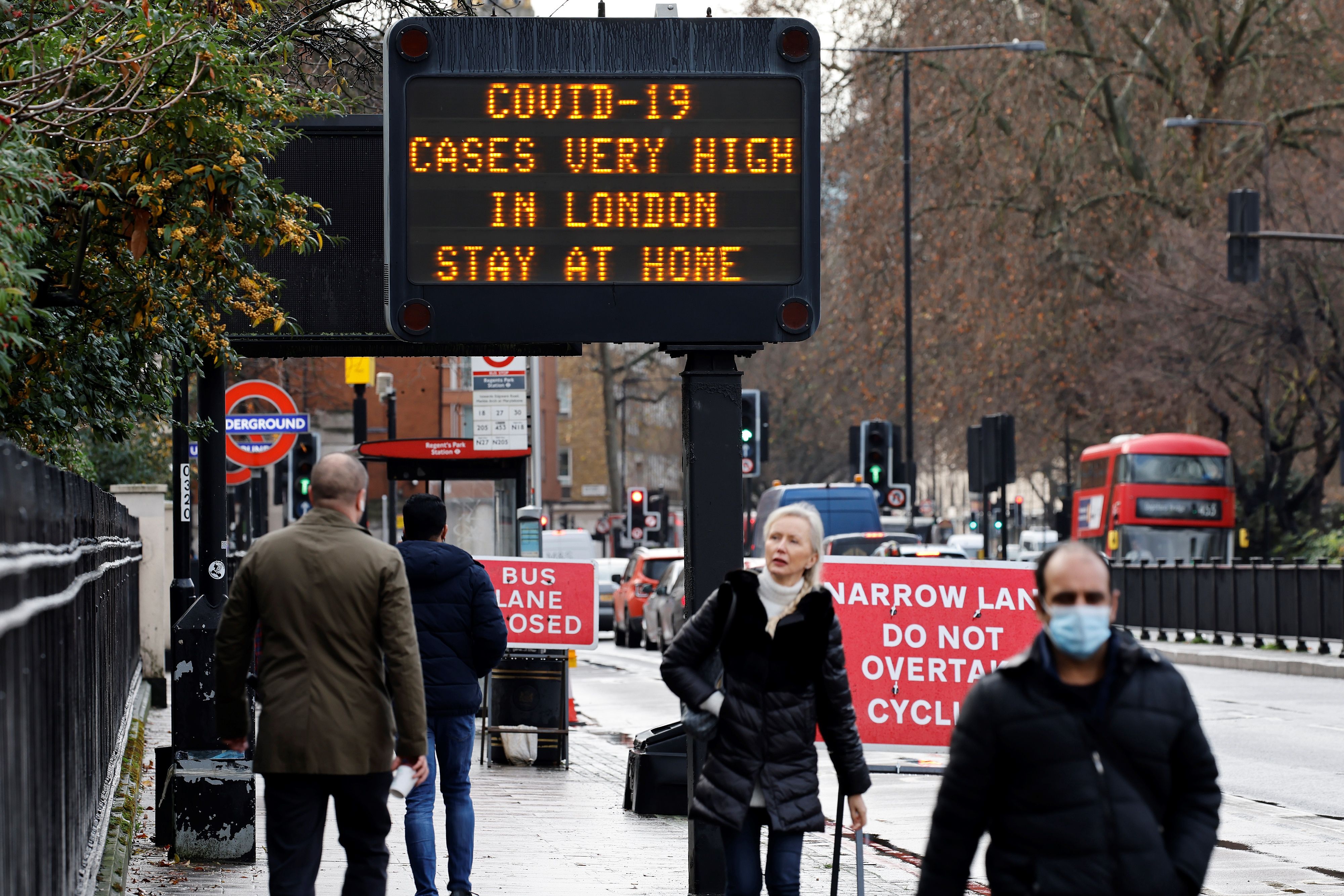Putin’s ‘energy ransom’ and deadly virus escaping lab ‘among serious threats facing UK’
New risk register also warns of malicious use of drones and cyber attacks on health care systems
Your support helps us to tell the story
This election is still a dead heat, according to most polls. In a fight with such wafer-thin margins, we need reporters on the ground talking to the people Trump and Harris are courting. Your support allows us to keep sending journalists to the story.
The Independent is trusted by 27 million Americans from across the entire political spectrum every month. Unlike many other quality news outlets, we choose not to lock you out of our reporting and analysis with paywalls. But quality journalism must still be paid for.
Help us keep bring these critical stories to light. Your support makes all the difference.
Vladimir Putin’s potential to disrupt world energy supplies, a deadly pathogen escaping from a lab and extreme weather linked to the climate crisis are among the serious risks facing the UK, according to a new government list.
The Cabinet Office has published a register designed to help Britain prepare for “worst-case scenarios” of some of the serious threats posed to the country.
Alongside a future pandemic and “Putin’s energy ransom”, other key risks outlined in the national register include the potential for the malicious use of drones and cyber attacks on health and social care systems.
Deputy prime minister Oliver Dowden is set to visit an energy supplier in Hartlepool on Thursday to launch what he described as “the most comprehensive risk assessment we’ve ever published”, which will allow “government and our partners (to) put robust plans in place and be ready for anything”.
Mr Dowden will highlight the first turbine installed at what will be the world’s largest offshore wind farm, which he said would help the UK “stand up to Putin’s energy ransom” in the wake of Russia’s invasion of Ukraine.
The likelihood and impact of each risk listed in the register has been calculated using data modelling and expert analysis, with both assessed as being relatively low (0.2 per cent and 1 per cent respectively) for Russia’s potential to disrupt global energy supplies.

Also included, in the wake of the Covid-19 outbreak, is what the register describes as the “accidental work-related (laboratory) release of a hazardous pathogen”.
The list says the chance of a pandemic is now between 5 per cent and 25 per cent and its impact would be “catastrophic”.

Wildfires and drought are also featured as key risks facing Britain. Extreme weather events such as heatwaves and storms range from “significant” to “moderate”, with a likelihood of between 1 per cent and 25 per cent.
The climate crisis has already altered the risk of certain types of extreme weather in the UK, with evidence suggesting that the frequency and intensity of storms is likely to increase in the future, the register says.
Newly listed for the first time this year are the malicious use of drones, cyber attacks on health and social care systems, cyber attacks on transport, sabotage to important undersea internet cables as well as disruption to space-based services.
Other risks are calculated by taking recent high-profile events into account. The list cites the murder of Conservative MP Sir David Amess in its assessment that there is a likelihood of more than 25 per cent for the assassination of a public figure.
The register measures likelihood on a scale of one to five with above 25 per cent the highest score, but says this is because “all risks” considered “are relatively low likelihood events”.
The latest register is designed to be the most transparent since its original publication in 2008. It is also the first time it has been updated since 2020.
Subscribe to Independent Premium to bookmark this article
Want to bookmark your favourite articles and stories to read or reference later? Start your Independent Premium subscription today.




Join our commenting forum
Join thought-provoking conversations, follow other Independent readers and see their replies
Comments